The views expressed in our content reflect individual perspectives and do not represent the authoritative views of the Baha'i Faith.
Just about every parent wants the best for their children.
Sure, some parents lack the ability or love or responsibility necessary to raise children; but most parents look at their offspring with affection, care and concern. We love our children. We want our babies to grow up, be fit and healthy, get a good education, thrive physically and mentally and spiritually, and ultimately become happy, fully-functional and independent adults.
As parents, we expend an enormous amount of time worrying about these things. It takes the bulk of our adult lives and every resource we can muster to try to make these things come true. And if something happens to our dear sweet child, despite all of our efforts, it can rightfully and completely devastate us.
To avoid the terrifying prospect of that loss and devastation, we naturally make every effort we can to protect our children. We want them, above all, to be safe. That instinctual human reflex – the protection of our children – is so hardwired in our minds, hearts and souls that it surpasses even self-preservation. Geneticists tell us, in fact, that the preservation and safety of our human offspring trumps every other instinct.
So what, parents always ask, can they do to best protect their children? Put them in a car seat while traveling? Buy them a bicycle helmet? Immunize them? Move to a gated community?
Actually, from the Baha’i perspective, one thing stands out above all others when it comes to protecting children – a spiritual upbringing.
Why? Because children raised with a spiritual perspective on life, with the high ideals and goals of promoting peace, unity and love in the world, tend to live healthier, happier and more fulfilled lives:
Children are even as a branch that is fresh and green; they will grow up in whatever way ye train them. Take the utmost care to give them high ideals and goals, so that once they come of age, they will cast their beams like brilliant candles on the world, …will set their hearts on achieving everlasting honor and acquiring all the excellences of humankind.
The root cause of wrongdoing is ignorance, and we must therefore hold fast to the tools of perception and knowledge. Good character must be taught. Light must be spread afar, so that, in the school of humanity, all may acquire the heavenly characteristics of the spirit…. – Abdu’l-Baha, Selections from the Writings of Abdu’l-Baha, p. 135.
Tragically, violence has become one of the chief killers of children in our modern world. Violence has sadly supplanted disease as the number one cause of childhood death in many countries around the globe. And while much of the violence that children encounter cannot be avoided in places where conflict rages; we can train our children with the “high ideals and goals” Abdu’l-Baha recommends – and teach them that violence is a tool of the ignorant.
We all know that violence creates and sustains more violence – sociologists and public health experts now have overwhelming evidence for that conclusion. This unending cycle of violence and revenge has plagued young people, especially young males, for much of recorded history. Scientists and researchers understand that violent death and injury rates among children and youth remain highest in places where resolving conflicts through violent means becomes the accepted norm in society. Where war or violent social unrest or gang conflict exists, children learn that adults typically settle their differences with guns and bombs – which makes those children more likely to settle their own differences in similarly violent ways.
So from a Baha’i perspective, one of the most effective and efficient ways of immunizing your children against violent injury or death is raising them peacefully. As peace-loving, gentle and kind human beings, children avoid the inevitable escalation that happens when a slight or an insult or a perceived lack of respect turns into a violent confrontation. Taught to be peaceful, children and youth can have the best possible chance of responding in a non-inflammatory way to a taunt, a dare, a challenge or a fight. They can develop the peacemaking skills that will enable them to defuse conflict and antagonism, rather than enflame it. They can solve problems in their early stages, instead of allowing them to grow, unchecked, into harmful or even fatal consequences.
A peaceful upbringing, a peace-loving home and a peaceable family life all give children the resources they need to lead a violence-free life.


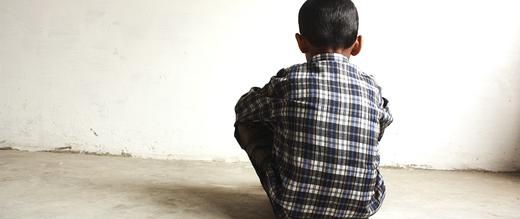

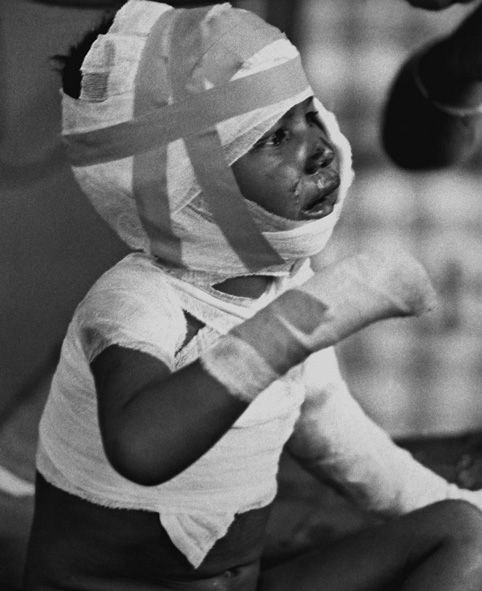


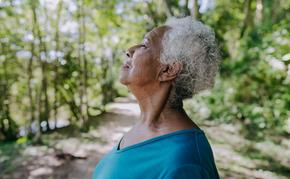

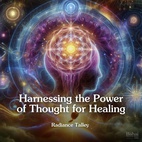

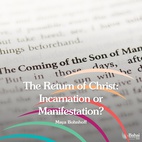
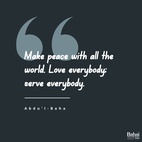





Comments
Sign in or create an account
Continue with Facebookor